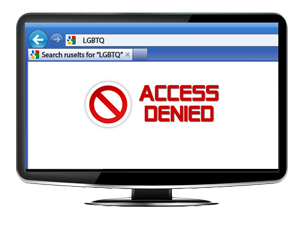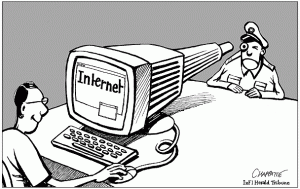
Epistemology is the theory of knowledge and the science of knowledge acquisition. There are different elements we can use to evaluate the epistemic value of the Children’s Internet Protection Act (CIPA). I’m going to focus on three specific elements: the epistemic power (does it produce a lot of true information), the epistemic fecundity (does it spread true information to a lot of people), and the epistemic significance (does it produce information that is relevant and important to the user).
It is clear digital information has changed the landscape of information resources. The Internet has opened a vast knowledge base for users to acquire knowledge and it has created a space for users to contribute to the information cycle. Since young students access information daily via the Internet, legislation aims to make their online experiences safe.
CIPA is a federal law that requires schools and libraries to install internet filters on public computers that are used by minors (anyone under age 17) in order to receive federal funding.
Schools and libraries receive between 20%-90% discount for telecommunications, Internet access, and internal connection services (Federal Communications Commission: FAQs, 2016). This ties the economics to the epistemic value of CIPA because the funding dictates the accessibility to information.
Do we protect by prohibiting access? 
Public libraries and schools cannot afford to not comply with CIPA. However, efforts to block internet content obscene to minors are more complicated than it may initially seem. It is a difficult balancing act: under blocking content can lead to students finding inappropriate content on a school computer and could lead to the school losing its funds, but over blocking can prevent users from accessing important information that they rely on the library to provide.
The epistemic power value of CIPA is low: not a lot of true information is available. 
The majority of filtration software use keywords to block websites, this often leads to over blocking. “Filters designed to target the word “breast” have blocked access to information about breast cancer and chicken breasts… Keyword filtering also frequently prevents users from accessing scientific information, news articles, and museum websites” (Internet Filters, 2016). Filters can intentionally limit student access to information that school administrators or school district officials find displeasing. For example; “school districts in Tennessee were the subject of a 2009 lawsuit by the ACLU because they blocked pro-LGBT sites while allowing access to gay conversion therapy” (Internet Filters, 2016). In these situations, users only access information for one side of the debate. If students cannot access information on all sides of an issue, and formulate an understanding for the truth of their beliefs, then CIPA’s epistemic value of power is low.
The epistemic fecundity value of CIPA is high: access to information is spread to a lot of people.
CIPA was created to keep students safe at school. The primary concern was for minors accessing obscene materials online. Under CIPA, every minor using a public computer in a school or library across the U.S. is protected from accessing obscene information.
Without federal funding under CIPA, many schools and libraries would not be able to afford to offer access to resources via the Internet. “When the E-rate program was established in 1996, only 14 percent of the nation’s K-12 classrooms had access to the Internet. Today, because of the FCC’s E-rate program, virtually all schools and libraries have Internet access” (Federal Communication Commission, 2016). This funding has helped standardize the accessibility of electronic information systems across schools and libraries. Given that many more users are provided with access to Internet resources under CIPA, the epistemic fecundity value of CIPA is high. Even though minors may not have access to the entire base of true information on the internet, they are still provided with access to many more resources than they would have without the funding benefits from CIPA.
The epistemic significance value of CIPA is low: information that is relevant and important to the user is restricted.
The epistemic significance value pertains to information that is relevant and important to the individual user’s knowledge (Mathiesen, 2016). If users cannot access information they are trying to seek (that is important and relevant to their lives), then the epistemic significance value is low. The majority of school districts block the sites: YouTube, Facebook, Skype, and National Geographic (Barseghian, 2011). Blocking YouTube is what tends to lead to over blocking because a variety of other websites have linked content through YouTube videos, such as KhanAcademy, TedTalks, or student exams with video components. This affects the epistemic significance value because these sites are relevant and important to students’ lives and education.
CIPA is an epistemically harmful public policy.
CIPA prevents the youth of our nation from having free access to information. While blocking access to obscene content on public computers seems like a good policy, the filtration software goes too far and censors access to information.
 As a country, we value the ideas of freedom of press, freedom of speech, freedom of access to information, and the freedom of thought. We value being allowed to critically analyze information and derive our own opinions as independent thinkers. Libraries and schools are public service institutions which promote, honor, and protect these freedoms. Young students should know these public institutions are places for them to freely learn and access information.
As a country, we value the ideas of freedom of press, freedom of speech, freedom of access to information, and the freedom of thought. We value being allowed to critically analyze information and derive our own opinions as independent thinkers. Libraries and schools are public service institutions which promote, honor, and protect these freedoms. Young students should know these public institutions are places for them to freely learn and access information.
